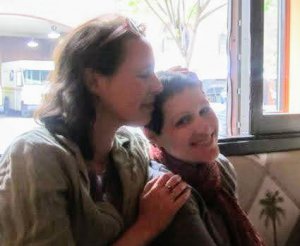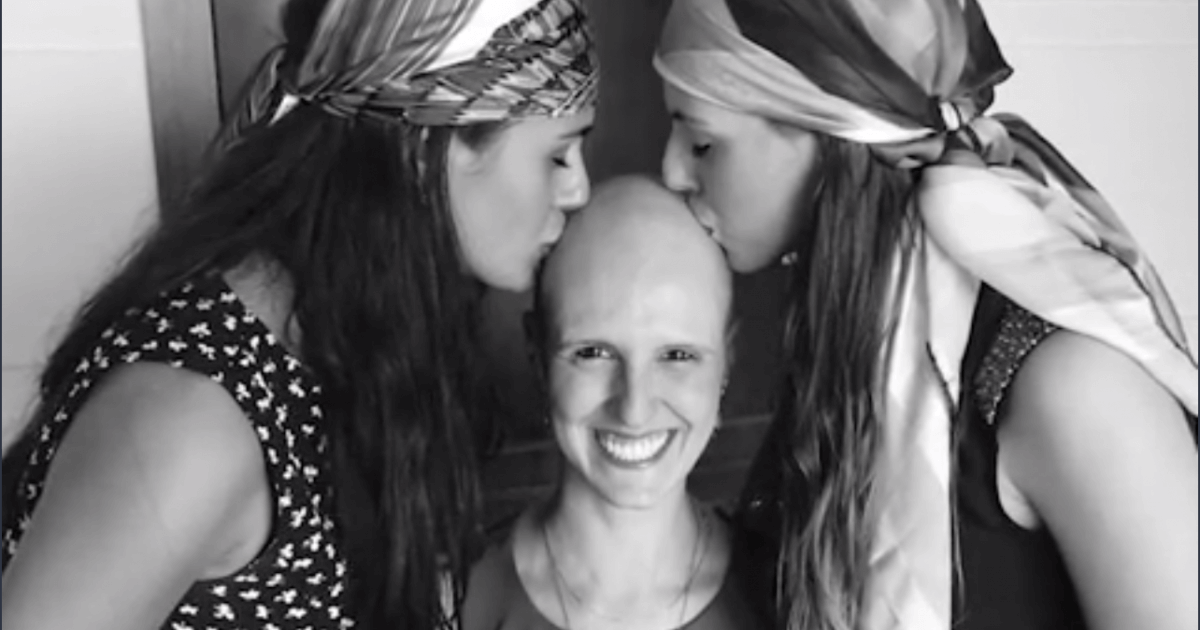Support, during and after cancer
- Support groups and hospital social workers are two of the resources often available to those going through cancer treatment.
- Make the choices that are right for you: Whether it’s continuing cancer-related support after treatment, remaining in cancer-related groups, or staying abreast of cancer research.
- Support from other survivors can be criticalbut it turned out that, for the author, supporting others with the disease was every bit as important.
Related: We're a Sisterhood: Getting Through Cancer Treatment Together
Read MoreI ask him for the exact name of the type of cancer he has, so that I can do some research on my own later. "You know I have my medical degree from Google University," I joke. He laughs; for weeks after, when we call to see how treatment is going, he will mention my Google credential. But he also has serious questions for me: "Pam, were you tired during radiation? How long did you do chemo? Have you had a PET scan? What was it like?"
Indeed, that's the way in which I am "one who knows:" I am a breast cancer survivor, diagnosed with stage 2 disease in 2008. I did chemo. I had surgery. I did radiation. Then I took recurrence-preventive medications for several years, experiencing serious complications (and needing another surgery) due to one of them. In the almost 13 years since my diagnosis, I've learned a lot about cancer treatments of varying kinds; tips to make it through those treatments; what questions to ask someone who has cancer; and what questions to suggest that they ask their doctors.
Learning Leads to Helping
I try to keep up with new developments in cancer research, at least enough to have a basic understandingand what I don't know anything about, yes, I can Google. I have many friends within the cancer community, and I learn from their experiences. I still get various scans several times per year; and I really don't want to think about how much time I've spent on the phone with insurance companies and doctors' offices during these years (bottom line, way too much).
I've talked with people who are newly diagnosed, people experiencing recurrences, and people who, just concluding active treatment, are coming out of hyper-focused "get it done" mode and suddenly feeling lost at sea. Beyond the basic technical understanding, I have at least some emotional understanding. I won't use terms that only specialists would understand; and I won't forget about the feelings that course through these circumstances.
So when a "cancer situation" comes around, people reach out to me for ideas. They send their friends who need guidance my way: "Talk to Pam. She might be able to help." And to my own shock, I often can.

Healing In Mind, Body, and Soul
Not every survivor chooses to stay up on research after treatment, or to become (or remain) involved in cancer groups. Some want to treat cancer as a brief detour and not let it occupy their thoughts, or their time, once treatment is done. This is perfectly valid, of course. It's fine to decide that the way to move on from cancer is to remove it as much as possible from your days.
On the other hand, good reasons to remain connected are as numerous as the survivors who choose to do so. Here is mine:
My mother was diagnosed with ovarian cancer just before my 12th birthday; and she died one week before I turned 16. When she was sick, I could do almost nothing for her. I couldn't take her to appointments; I had to go to school, and I was too young to drive. I knew nothing about cancer and could not help her navigate anything. On a personal level, I was devastated every single day and mostly focused on not crying in front of her.
My mother was my best friend, and I didn't know how to help myself through this crisis, let alone support her. For many years, the way this went shrouded my emotions like the thickest cloud. The sadness, not just of having lost her but of not having been able to do more, was never far from my heart.
Years later, my own cancer diagnosiswhich came, unbelievably, two days before the anniversary of my mother's deathat first just seemed like a new disaster. And to be sure, it has brought me a great many painful challenges. However, that's not all that has happened.
I attended my first in-person support group one day after my diagnosis. After that, I also joined a group at my hospital and an online community particularly for young women diagnosed with breast cancer. I realized fast that this part of thingscommunicating and bonding with other women who had breast cancerwas going to be "for me." But it was probably not until I was standing in line at the post office, about two months into chemowith a scarf on my head and a care package for a hospitalized fellow survivor in my handsthat I realized the fuller story: I could help. Finally, I could help.
The support that I've received, and still receive, with cancer-related issues has been crucial to my getting through them. But being a survivor, and a member of survivor communities, has placed me in a particular position to help others with cancerand that has been just as critical to me. I can help research treatment decisions; I can help people process a loved one's cancer; I can join in doctor's appointments or chemo sessions when invited (and I'm not afraid of the machines or the beeping sounds). I can be that person; and it eases an ache I'd never thought would begin to heal.
The benefit of support networks for cancer patients
We Can Do It
Recently I emailed a colleague, mentor, and good friend of mine, just to check in. I was shocked when she responded that she'd just been diagnosed with breast cancer but had not yet begun to let most people know.
Grateful that she'd told me, I kicked into supporter mode as she went through her next diagnostic appointments. When she learned she had cancer in some lymph nodes near her breast, I was able to tell her I'd had that tooquite a lot of cancer in my lymph nodes, actuallyand so had many other friends of mine who've since remained cancer-free for years.
I will give my friend, and anyone who wants it from me, all the help and support through cancer that I can. As it turns out, this is part of my life's work. I do it to honor my mother. I do it because it's a balm for the wound of her loss, in addition to being some actual help to others. I do it because I know without question my mother would have done the same, if she’d had the chance. I do it becausewho would ever have known?it's something I've turned out to have some affinity for.
"We'll deal with this," I email my friend back. "Step by step." And we will.
Support: During Or After Cancer Treatment
Cancer is a shock to the system, and you do not have to face it alone. Of course your loved ones want to help, but sometimes youand those who are supporting you, toomight need guidance from trained professionals and/or people who’ve faced the same circumstances.
Some options:
- See if your hospital offers a support group for people in treatment (there may even be a particular one focussing on the type of cancer you have), and/or private sessions with a hospital social worker. Many cancer facilities are realizing the importance of these resources and working to make them easily available.
- Two organizations I can personally recommend: Young Survival Coalition, for people diagnosed with breast cancer at younger ages (generally, early 40s or below); and SHARE, for women and families affected by breast, ovarian, or uterine cancer.
- Cancer Care offers support groups, one-on-one counseling, and also financial guidancein person (when it’s possible) or by phone.
- Rememberloved ones of the person with cancer may need help too, and many hospitals and organizations (including the ones above) are working to provide it. Keeping everyone’s needs in mind and trying to address them will help your whole crew to stay sane and face the stresses that cancer can bring.
Author’s note: Written with memories of how much J.M. has helped me. Now it’s my turn to help. We can do this!
Learn more about SurvivorNet's rigorous medical review process.


